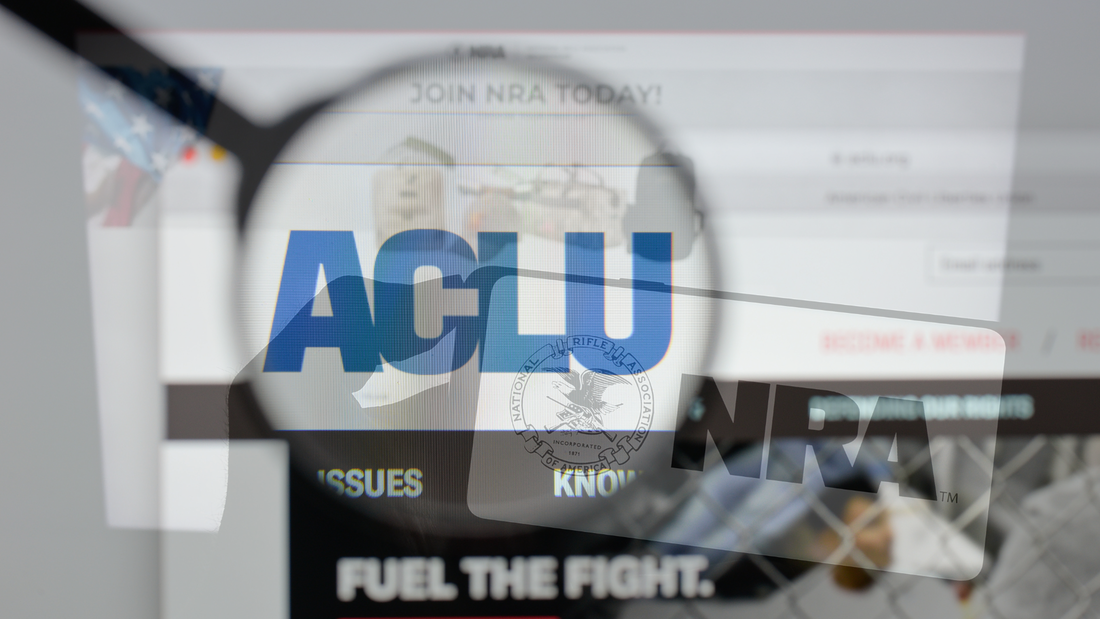|
They say, “misery acquaints a man with strange bedfellows,” and to most followers of the national discourse, no pair of institutions could make for an odder couple than the National Rifle Association and the American Civil Liberties Union. Yet in keeping with its principles, the ACLU has decided to represent the NRA before the Supreme Court, and it’s causing some consternation within the group.
The ACLU of Texas announced on December 15 that it would not join with its national organization in siding with the NRA’s suit against New York’s Department of Financial Services. They join the New York Civil Liberties Union, who said in a statement: "The NRA is among the most powerful advocacy organizations in the country, with resources to secure the nation’s finest lawyers. It does not need the ACLU to volunteer for that job." The case, National Rifle Association v. Vullo, asks whether former New York State Department of Financial Services Superintendent Maria Vullo violated the First Amendment by encouraging banks and insurance companies to stop doing business with the NRA following the 2018 Parkland, Florida high school shooting. The U.S. Court of Appeals for the Second Circuit ruled against the NRA, arguing that “government officials have a right — indeed, a duty — to address issues of public concern.” The NRA, which is also represented by Brewer Attorneys and Counselors as well as constitutional scholar and Protect the First Senior Advisor Eugene Volokh, believes the case was erroneously decided. In their certiorari petition, they write: “The Second Circuit’s opinion below gives state officials free rein to financially blacklist their political opponents – from gun-rights groups to abortion-rights groups, to environmentalist groups, and beyond. It lets state officials ‘threaten[] regulated institutions with costly investigations, increased regulatory scrutiny and penalties should they fail to discontinue their arrangements with’ a controversial speaker, on the ground that disfavored political speech poses a regulable ‘reputational risk.’ … It also permits selective investigations and penalties targeting business arrangements with disfavored speakers, even where the regulator premises its hostility explicitly on an entity’s political speech and treats leniently, or exempts, identical transactions with customers who lack controversial views.” For their part, the ACLU has made clear that they disagree with the NRA’s overarching policy goals. In a statement, they said: “The ACLU does not support the NRA or its mission. We signed on as co-counsel because public officials shouldn’t be allowed to abuse the powers of the office to blacklist an organization just because they oppose an organization’s political views.” We could not agree more, and the NRA makes a compelling argument that Vullo overstepped her bounds. In fact, the Supreme Court has already ruled in Bantam Books v. Sullivan from 1963 that the government violates fundamental First Amendment rights when it targets an organization through “informal sanctions,” including “coercion, persuasion and intimidation.” We applaud the ACLU for standing up for what’s right, even – and especially – when it’s hard to do so. We look forward to further developments in this case. Comments are closed.
|
Archives
June 2024
Categories
All
|
ABOUT |
ISSUES |
TAKE ACTION |



 RSS Feed
RSS Feed